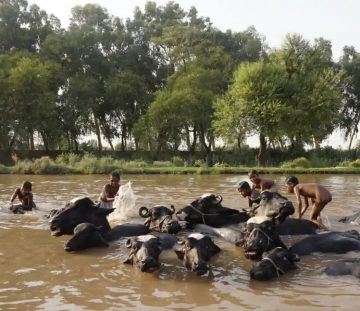Mohammed Hanif in The Guardian:
 I went to a school in Pakistan’s Punjab province called government primary school, Chak 2/4-L. Chak means village; 2/4-L is the name of my village, 2/4 the number of the canal feed that irrigates it, and L because it’s on the left side of the canal. Most villages along the canal had named themselves after a local legend or a landmark. We never bothered. I always assumed that our people were so hardworking they forgot to name where we lived.
I went to a school in Pakistan’s Punjab province called government primary school, Chak 2/4-L. Chak means village; 2/4-L is the name of my village, 2/4 the number of the canal feed that irrigates it, and L because it’s on the left side of the canal. Most villages along the canal had named themselves after a local legend or a landmark. We never bothered. I always assumed that our people were so hardworking they forgot to name where we lived.
I don’t mean to romanticise hard labour, but my people were always busy cultivating their land. The land was fertile, but fertile land requires even harder work: you must irrigate it at midnight and pick your vegetables before dawn. And there were rewards. If you owned two acres of land you could send your sons to university and give water buffaloes to your daughter in their dowry; if you had no acres but owned a buffalo you could still send your son to school and your daughter to a Qur’an class.
Whenever my mid-range landlord father got his occasional bout of agricultural ambition, he would use it for our character building; he would drag us out of our beds before dawn and make us pick vegetables – aubergines, okra, courgettes, all things we considered vile – and then, with baskets over our heads, make us walk to the vegetable market in the city.
More here.
